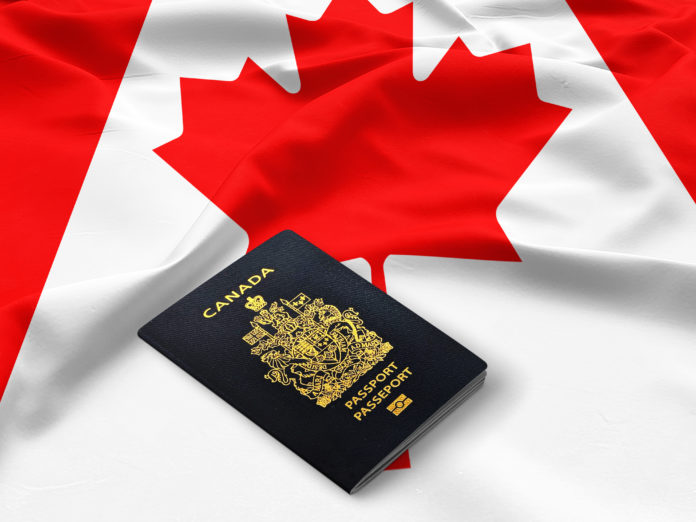
International students, health care workers and other workers in essential occupations who are candidates for Canada’s new pathway to permanent residency announced in May are to get access to open work permits.
“Our new path to permanent residence for 90,000 essential workers and international graduates is a major step forward, the size, speed and scope of which is unprecedented,” said Immigration Minister Marco Mendicino in a statement on Thursday, July 15.
“This new open work permit ensures that those who have been playing critical roles throughout the pandemic can continue their extraordinary service,” he said. “Our message to them is simple: your status may be temporary, but your contributions are lasting – and we want you to stay.”
Read More
Watch: Canada Targets Francophones With New Pathway To Permanent Residency Livestream
Canada’s New Temporary to Permanent Residence Pathway: Every Document You Will Need
Watch: Canada Immigration Minister Goes Live To Discuss New Permanent Residence Pathways
Under the new pathway, international students who graduated from a Canadian institution, health care workers and those in other designated essential occupations can get their permanent residency in Canada.
But they have to be legally working in Canada at the time of their application and maintain their temporary resident status until a decision is made on their permanent residence application.
In the past few weeks, Ottawa realized there was a fly in the ointment.
While many of those whose status is set to expire are able to extend their work permit under existing programs or receive a new permit under one of the temporary measures put in place as a result of the pandemic, others weren’t able to get such an extension to their work permits.
Until now.
“We recognize the potential disruption and uncertainty for applicants who have an expiring work permit, and have been working to ensure that those who don’t qualify for existing measures won’t lose their temporary status and work authorization,” noted Immigration, Refugees and Citizenship Canada (IRCC) in a statement.
Open Works Permits Valid Until Dec. 31, 2022
The open work permits issued under this temporary policy will be valid until the end of next year.
To qualify for this one-time open work permit, the applicants must show that they:
- have successfully submitted an application under one of the new permanent residence pathway’s streams;
- held a valid work permit, or were authorized to work without a work permit, at the time their permanent residence application was submitted;
- hold a valid work permit that is set to expire within the next four months;
- have temporary resident status, maintained status or were eligible to restore their status at the time their open work permit application is submitted;
- are in Canada at the time their open work permit application is submitted;
- were employed in any occupation at the time their permanent residence application was submitted, and;
- meet the language requirements of the stream under which they applied at the time their permanent residence application was submitted.
Spouses, Common-Law Partners Also Qualify
The applicant’s spouse or common-law partner and dependent children 18 years or older are also eligible to apply for an open work permit under this policy if they are already in Canada.
The new pathway to immigration will accept:
- 20,000 applications for temporary workers in health care;
- 30,000 applications for temporary workers in other selected essential occupations, and;
- 40,000 applications for international students who graduated from an eligible Canadian institution.
In less than two months, the new pathway to immigration has already been praised by minority francophone community leaders and employers in Canada’s healthcare sector.
Francophone Communities and Healthcare Leaders Praise New Pathway
“Since there is no limit to the number of French-speaking candidates who can take advantage of this new pathway to the permanent residence until November, we encourage all temporary workers and recent graduates of our colleges and universities that wish to establish themselves within the Canadian francophonie to explore whether this new option meets their needs and aspirations,” said Liane Roy, president of the Fédération des communautés francophones et acadienne (FCFA) du Canada, earlier this week.
“We also invite organizations and institutions in our communities to promote this program to French-speaking temporary residents over the coming weeks and months,” she said.
The FCFA is an umbrella organization with 20 members, including 12 associations for francophones.
Dr. Victoria Lee, president and CEO of the Fraser Health Authority, has described the new pathway as a valuable tool in helping health authorities get the staff they need.
“When the healthcare system is stretched, it’s not because we don’t have enough space, enough beds. It’s because we don’t have enough people,” said the top exec for the health authority in British Columbia’s Lower Mainland.
“There are many healthcare workers that are in under-employment situations because their healthcare credentials are not recognized,” she said.
Both Dr. Lee and Rhose Harris-Galia, a nurse and supervisor at Alberta Health Services, agreed earlier this year the new pathway to permanent residency will allow healthcare workers from other countries already working in Canada to make longer-range plans and get their qualifications recognized.
“Nurses and other healthcare professionals still have to get the qualifications to get these roles,” said Harris-Galia. “Hopefully, once they get their permanent residence, this will allow them to finalize their plans … and have a bit more stability.”
In all, the new streams draw on workers in 40 healthcare occupations and 95 other essential jobs, including caregiver, food production, and distribution worker.

